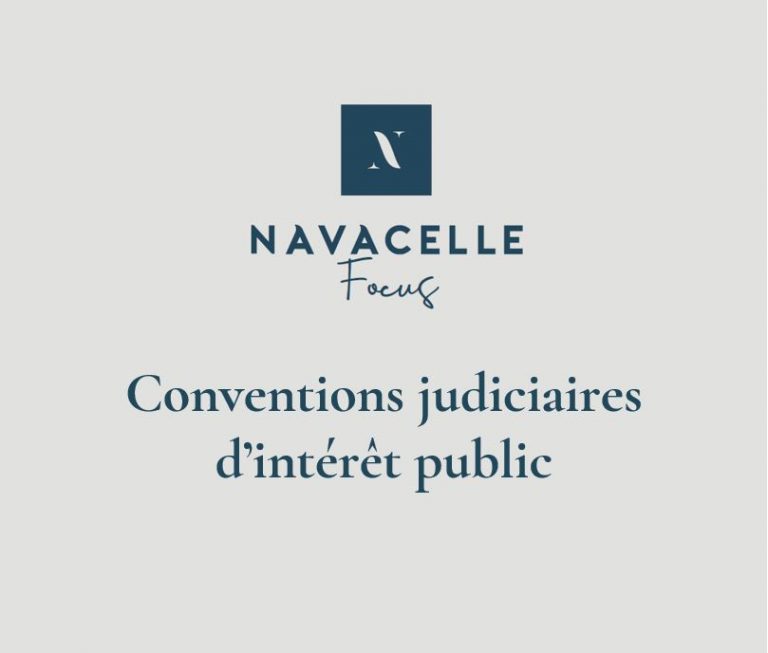Since the entry into force of the Sapin II law, ten Conventions Judiciaires d’Intérêt Public
I. The Airbus CJIP paves the way for increasinly collaborative transactional justice
On January 31, 2020, the Tribunal of Paris approved the CJIP between the European company Airbus and the PNF, for corruption of public officials. Airbus agreed to pay a fine of 2,083,137,455 euros. This amount is part of a total fine of 3.6 billion euros shared with the US Department of Justice (“DOJ”) and the British Serious Fraud Office (“SFO”) [1]. This CJIP is coupled with a three years compliance monitoring carried out by the French Anti-Corruption Agency (“AFA”). It was clarified by the AFA however, that the Airbus compliance program had been completed and its deployment was being monitored.
The multi-jurisdictional investigation relating to Airbus led to investigative measures in over twenty countries [2] and was carried out in large part by a joint PNF/SFO team. The investigation revealed that repeated illegal and non-compliant practices were implemented by commercial intermediaries hired by Airbus to negotiate with governmental and private customers and obtain new contracts. Financial and in-kind incentives were offered or provided to foreign airline executives and public officials, through the entity which oversaw the group business development activities called Airbus Strategy and Marketing Organization (“SMO”).
The National Financial Prosecutor, Jean-François Bohnert, described this CJIP as “an exceptional moment […], because it is the result of exceptional proceedings”. Indeed, the extraordinary nature of these proceedings can be explained by several factors:
First, the novelty and exemplary nature of Airbus’ cooperation. Airbus decided to fully cooperate with the authorities and disclosed many documents and elements from its internal investigation. Deputy Financial Prosecutor, Eric Russo, referred to a relationship of trust between the investigators and Airbus’ lawyers, while specifying that “trust does not mean complacency”. While this does not mean that the PNF acted as the company’s lawyer nor that the company lawyers undertook the role of the prosecutors, all parties acted willingly to work constructively and compromise. Airbus’ efforts have been rewarded by its foreseen penalty being cut in half. This will be likely to encourage greater cooperation from future companies.
Secondly, the content of the investigation. Three and a half years of investigating, with 30 million documents to be analyzed, some 40 former executives and employees interviewed by the OCLCIFF, many raids including at former Airbus executives’ residences and requests for mutual assistance in Switzerland, Lebanon, and Latvia, was an extremely costly procedure.
Thirdly, the role of the PNF and the AFA along with the DOJ and the SFO. The appointment of monitors raised a question of sovereignty and protection of the France’s economic interest, on account of the risk of transmitting sensitive information. The DOJ and SFO agreed to waive the designation of their own monitor in favor of the AFA, that is to monitor the deployment of the compliance program. It confirms that “France has both the knowledge and the ability” to do so.
This first experience of full cooperation was significant also because of the tripartite collaboration between the company, investigators and magistrates as the internal investigation was led in cooperation with the authorities, as well as the coordinated action of three prosecuting authorities.
This CJIP which took place on the sixth anniversary of the PNF, is a major step forward for collaborative justice. It enables the French justice system to recover its full powers. This is illustrated by the preponderant place of the PNF in the investigation and the allocation of more than two thirds of the fine to the French state. It also marks the international recognition of French jurisdiction in matters of economic and financial delinquency and paves the way for multi-jurisdictional resolutions.
II. The Google CJIP is a sign of the fight against tax fraud
On September 3, 2019, Google’s French and Irish subsidiaries concluded a CJIP with the PNF on charges of tax fraud and complicity of tax fraud [3]. This is the second CJIP in relation to tax fraud since the law of 23 October 2018 extended this mechanism to this offense [4]. Google, which was already sued in several countries and had to conclude several hundred million euro agreements with the tax authorities of the United Kingdom and Italy, agreed to pay a public interest fine of 500 million euros in return for the termination of criminal proceedings [5].
The dispute started after allegations from the French tax authorities stated that Google France, a subsidiary of the US company Google LLC, was a French permanent establishment of the European headquarters Google Ireland Ltd, based in Ireland. Google France considered a contrario that all its activities were carried out from Ireland, where income tax is much lower than in France.
Google won the case before the Paris Administrative Court in July 2017 and before the Paris Administrative Court of Appeal in April 2019 [6]. These decisions did not recognize the existence of a permanent establishment in France and reversed the corporate tax reassessment for the period 2005-2010. The Ministry of Action and Public Finance then brought the case before the French Administrative Supreme Court (Conseil d’État).
As a matter of caution, Google chose a negotiated approach and concluded a CJIP.
This CJIP was jointly negotiated by Google, the PNF and the tax authorities, which extinguished both the legal proceedings and the tax disputes from 2005 to 2018, opened in France against Google. In addition to the 500 million euros fine, 465 million euros were thereby paid to the tax authorities and closed the procedure for the company’s tax reassessment.
This amount has been determined in compliance with the proportionality principle set by the French Constitutional Council (<em) with respect to the combination of criminal fines with tax sanctions [7]. Indeed, the CJIP recalls the rule according to which “the combination of criminal and tax penalties is permitted where the total amount of any penalties applied does not exceed the highest amount of one of the penalties incurred [8].”</em
This agreement between Google and the PNF owes much to the political context of taxation of multinationals and the French willingness to respond to the imperative of tax fairness. For that matter, even though Google’s permanent establishment in France has yet to be recognized, the digital giant will be subject from now on to a new tax on its digital services, the GAFA tax [9].














